Scratching Heads and Knitting Bricks Secularists continue to protest the 'Hobby Lobby' decision
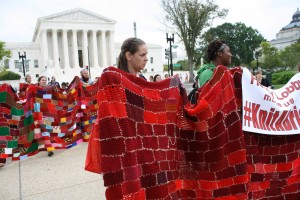 Participants in the #Knitabrick March. View more photos from the event at the bottom of this article. (Photo by SCA)
Participants in the #Knitabrick March. View more photos from the event at the bottom of this article. (Photo by SCA) “I think you’re just wasting your time out there,” the customer in line said to me yesterday as I waited for coffee before heading to the Secular Coalition for America’s “Knit A Brick” march at the U.S. Supreme Court building. Referring to the craft store involved in the recent Hobby Lobby decision, the customer continued, “SCOTUS assured us that the business was doing the right thing.”
As a theological scholar from Britain, when I heard “SCOTUS” my mind immediately went to Duns Scotus who changed a major aspect of Roman Catholic theology by successfully arguing for Immaculata—Virgin Mary’s immaculate conception of Jesus—a concept not widely accepted amongst theologians at the time (14th century CE), though considered orthodox theological thought today. Having only recently returned to live and work in America after fifteen years abroad, it took me a minute to realize that the customer was talking about the Supreme Court of the United States.
It was then that the irony of my initial misunderstanding became sweet, given the ongoing struggle of a classic American trilogy: religion, politics, and sex. The implications of the recent Supreme Court decision supporting Hobby Lobby’s refusal to provide its employees with certain types of birth control on religious grounds captured my attention in relation to these three topics. And there is much more to this decision than what I have typically seen glossed as a polarized struggle against “liberal Obamacare.” It has raised more church/state separation questions than provided answers, and it’s what prompted the SCA to launch a campaign to enlist those outraged by the decision to create a figurative wall of separation, which in the end totaled over 1,600 colorful knitted bricks.
First, there is the issue of religious rights. Lauren Markoe and Cathy Lynn Grossman’s June 30, 2014, Religion News Service article illustrated that the religious practices of a corporation could be protected under the Religious Freedom Restoration Act. In this particular case, the religious practice being debated focused on only one particular evangelical Christian understanding of the sanctity of human life and how this sanctity is threatened by abortion. A question to consider: What if a business is run on Qur’anic principles? Would you care?
Secondly, as Steven Davidoff Solomon wrote in last week in the New York Times, there may be a second Achilles’ heel that has been revealed from this decision. Solomon stated that “the court did not apply the decision to all corporations. Instead, it merely held that for-profit ‘closely held corporations’ could be exempt from providing the coverage under the Affordable Care Act.” Another question to consider: Would it be acceptable to create a larger for-profit business than a “closely held corporation” whose board of directors all hold the same theological views? If so, how can you enforce this without discrimination?
The third issue that stuck out in my mind was that the five family members who own and operate Hobby Lobby say that they have signed a pledge regarding how they would run their company: “Honoring the Lord in all we do by operating the company in a manner consistent with biblical principles.” David Green, Hobby Lobby’s CEO, was consistent in his view on “biblical principles” when he wrote his op-ed in USA Today stating that it was his family’s commitment “to run our business in harmony with God’s laws.” Biblical principles? God’s laws? What are these and in whose interpretation? I have looked and still haven’t found a statement from Green’s family about their interpretation on these matters. Would this decision be unfairly penalizing a “closely held corporation” whose ownership espouses more liberal interpretations of “biblical principles,” whereas the more conservative interpretations can seemingly opt out?
I have, however, found biblical principles that support medical ethics—Christian medical ethics—contrary to Hobby Lobby’s interpretation. In the United Kingdom, I was fortunate enough to live in a society where the government made a healthcare commitment to its citizens on July 5, 1948, with three core principles: that it meets the needs of everyone, that it’s free at the point of delivery, and that it is based on clinical need, not the ability to pay. Contraception—including the “morning-after pill”—is covered under the UK’s National Health Service, as is abortion. (It is suggested that abortions be carried-out before fourteen weeks, though the law allows abortions up to twenty-four weeks unless the mother’s life is at risk. If it is known that the child would be born with a severe physical or mental disability, the abortion can take place after twenty-four weeks).
What do the UK’s religious leaders think about reproductive freedom? Up to twenty-six senior Church of England bishops sit in the House of Lords in the UK Parliament as Lords Spiritual and have a role with the establishment of law, including making official religious statements that inform and guide the legislative process. Their stance as of today is that contraception is not regarded as a sin or going against God’s purpose, and that the mother of an unborn child needs understanding and support, not penalizing or condemnation.
With the coming of more questions rather than the provision of answers in the Hobby Lobby decision, I imagine we will see further challenges, cases, and court costs. Perhaps Duns Scotus’s intricate defense of the Immaculate Conception is easier to explain and live with than contraception provision post-Hobby Lobby.
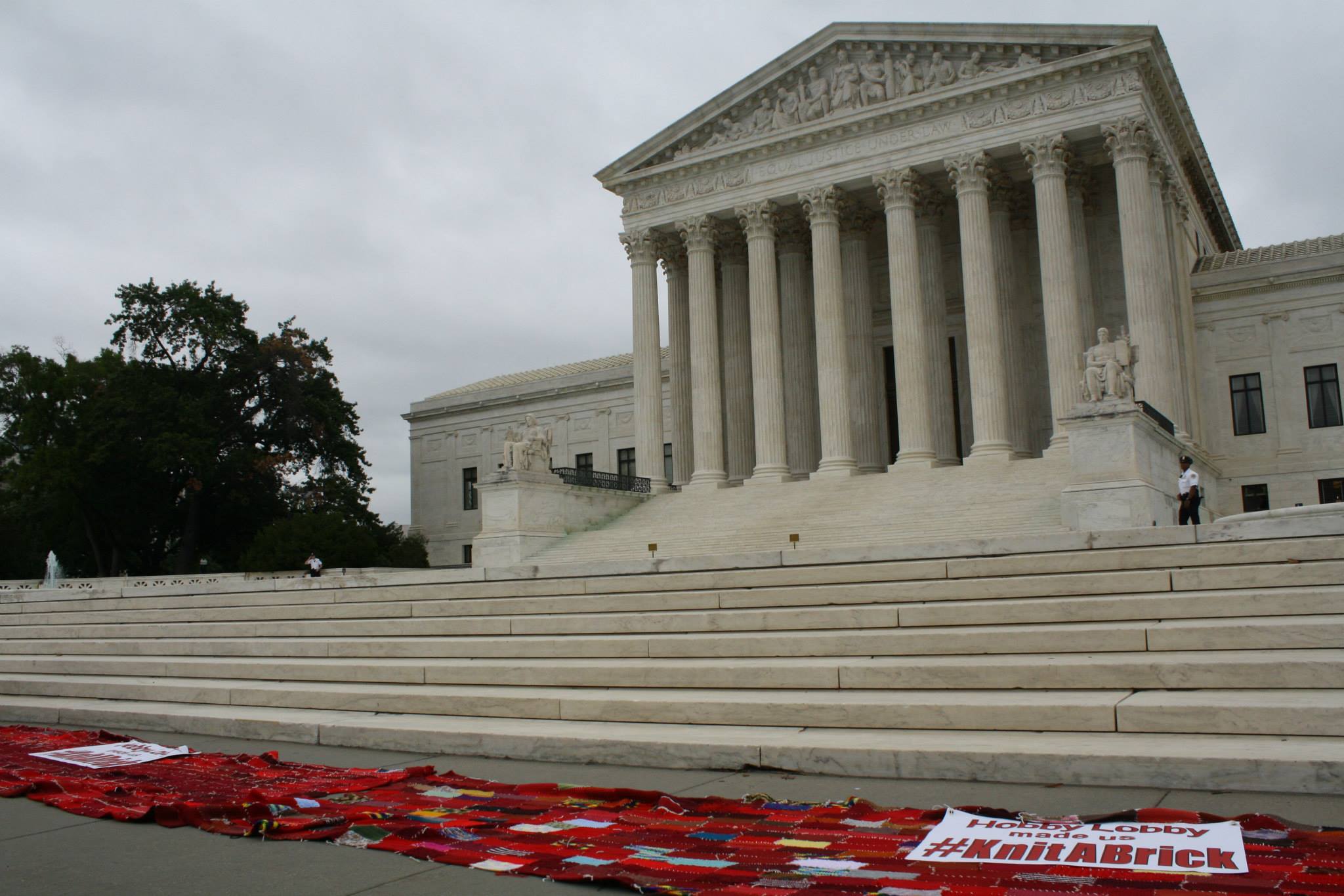 The SCA’s #Knitabrick March (photo by SCA)
The SCA’s #Knitabrick March (photo by SCA)
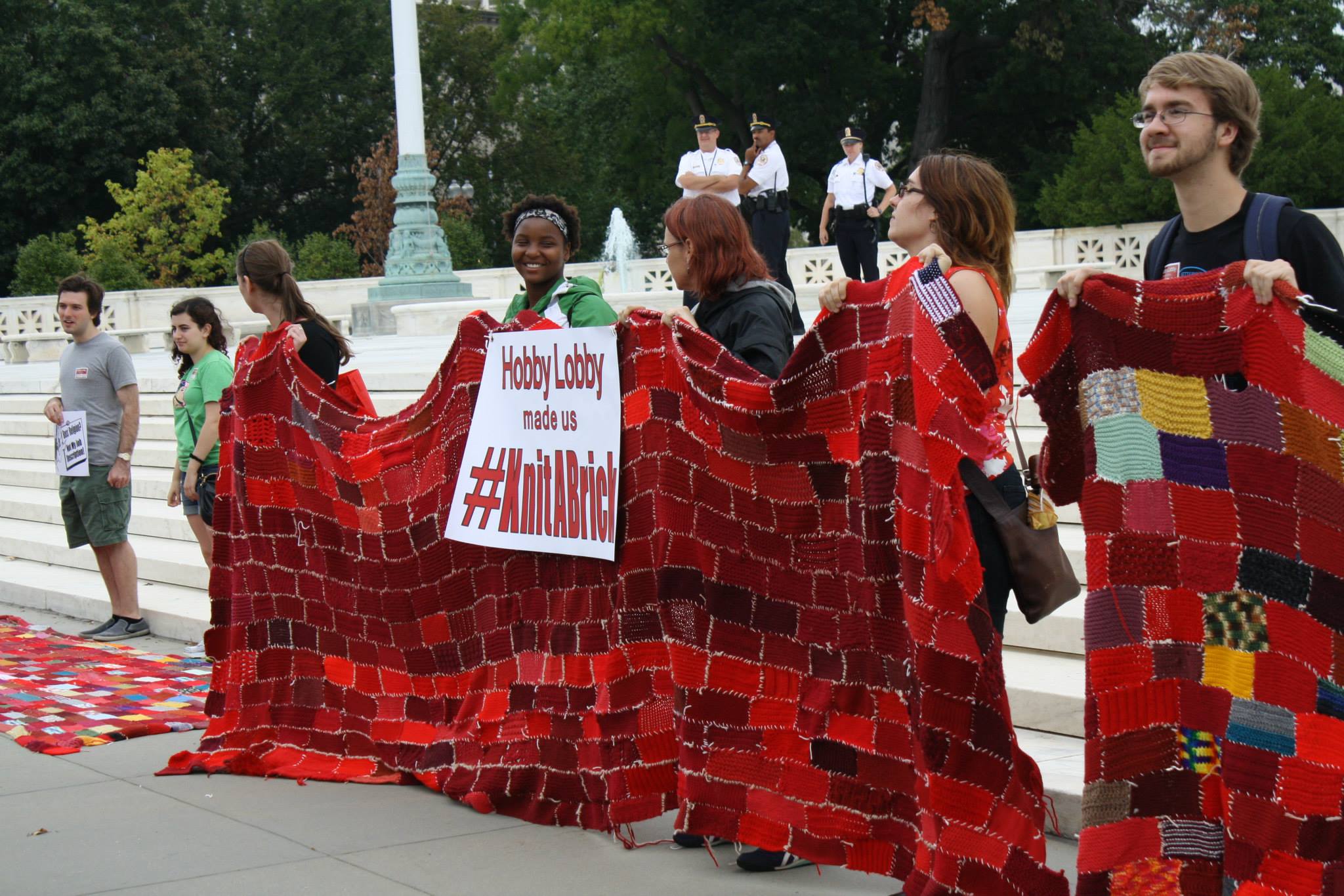 The SCA’s #Knitabrick March (photo by SCA)
The SCA’s #Knitabrick March (photo by SCA)
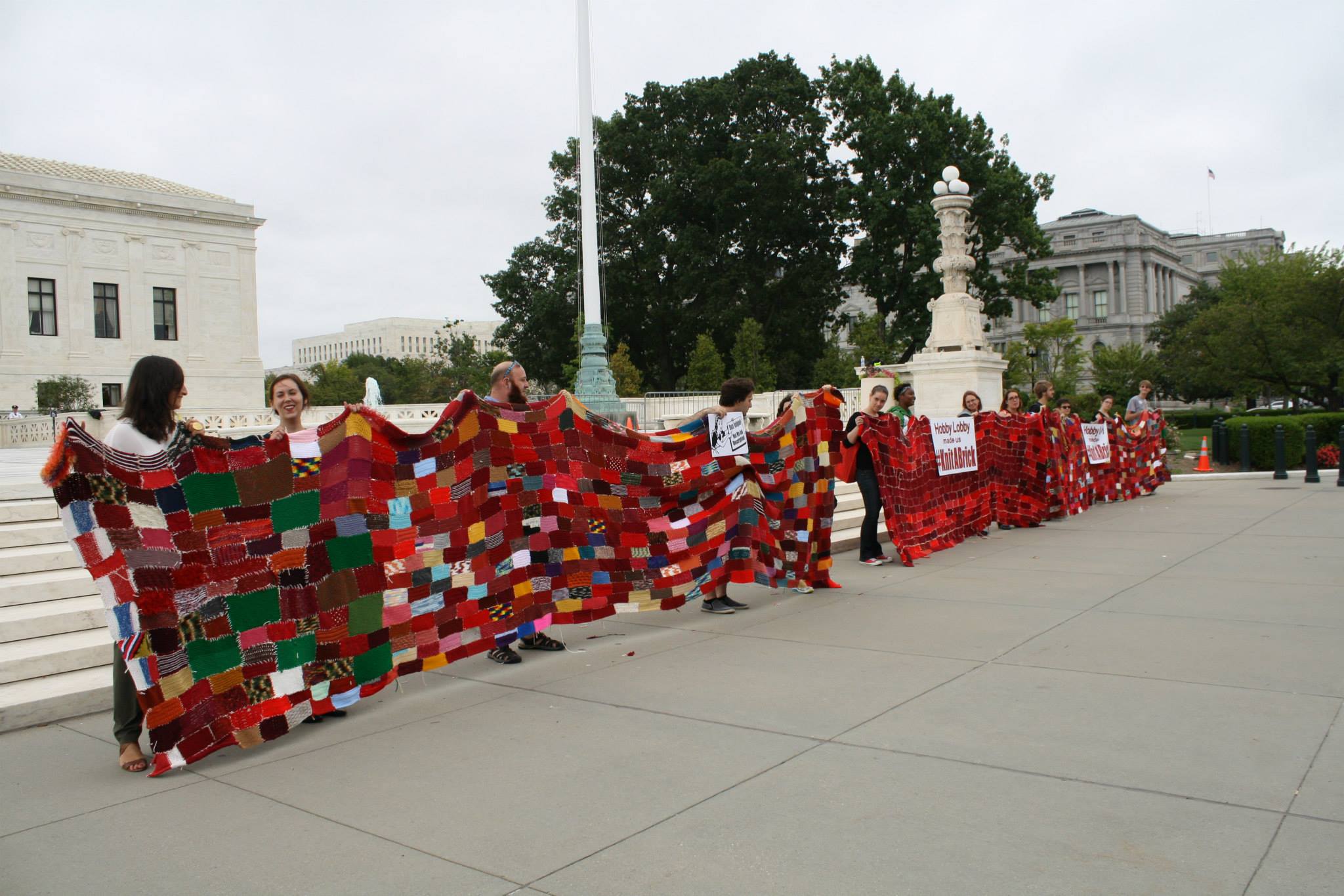 The SCA’s #Knitabrick March (photo by SCA)
The SCA’s #Knitabrick March (photo by SCA)
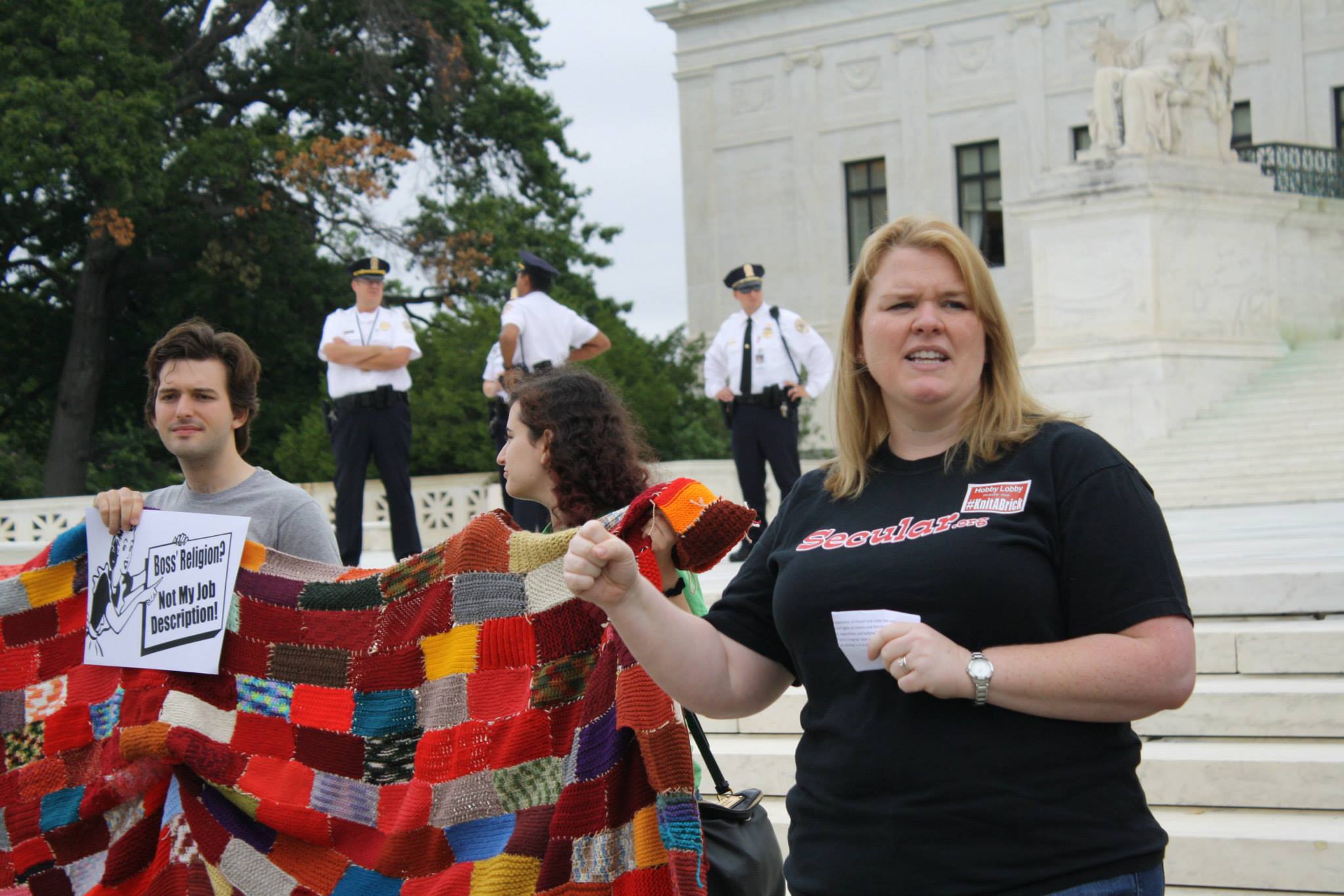 The SCA’s #Knitabrick March (photo by SCA)
The SCA’s #Knitabrick March (photo by SCA)
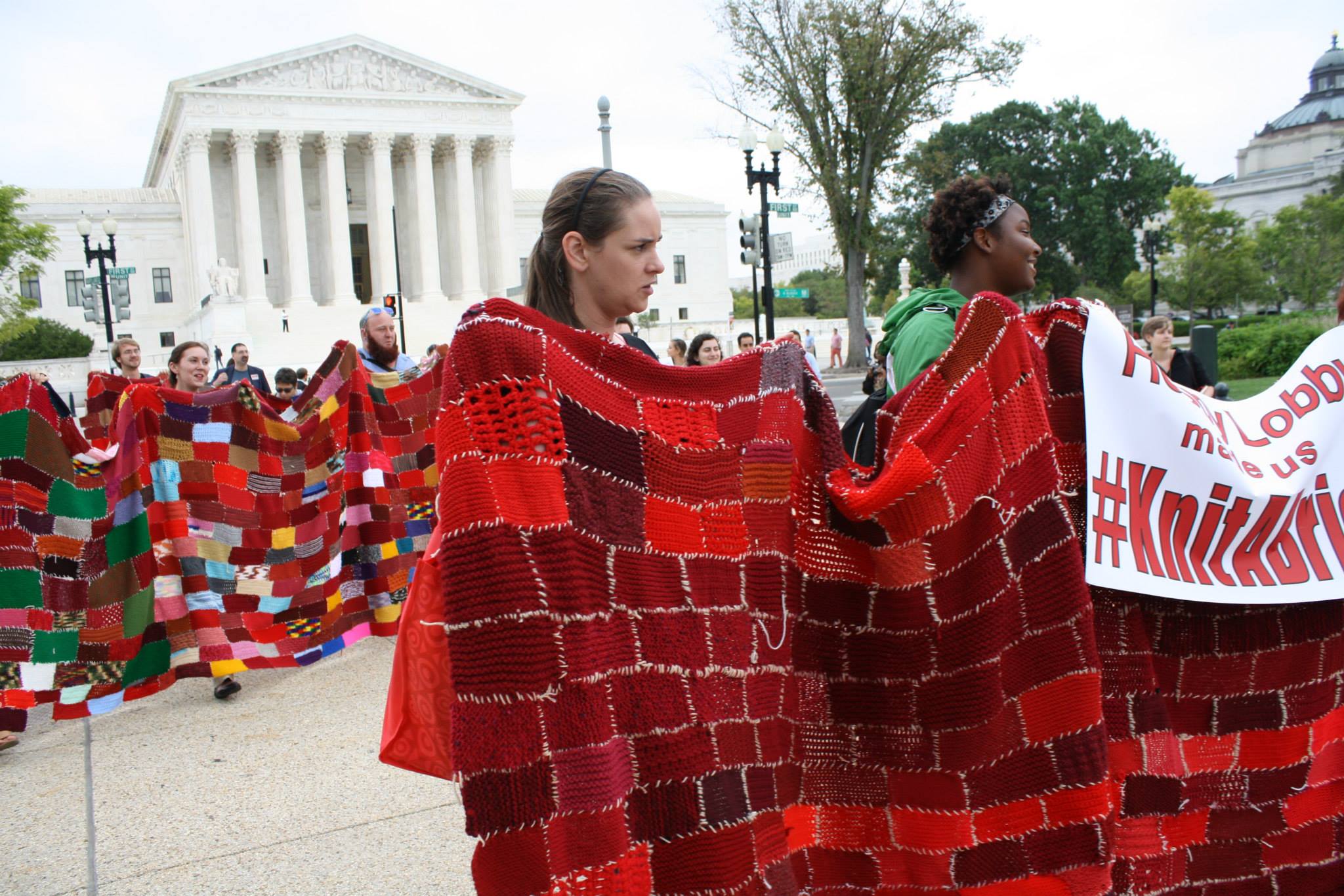 The SCA’s #Knitabrick March (photo by SCA)
The SCA’s #Knitabrick March (photo by SCA)
 The SCA’s #Knitabrick March (photo by SCA)
The SCA’s #Knitabrick March (photo by SCA)
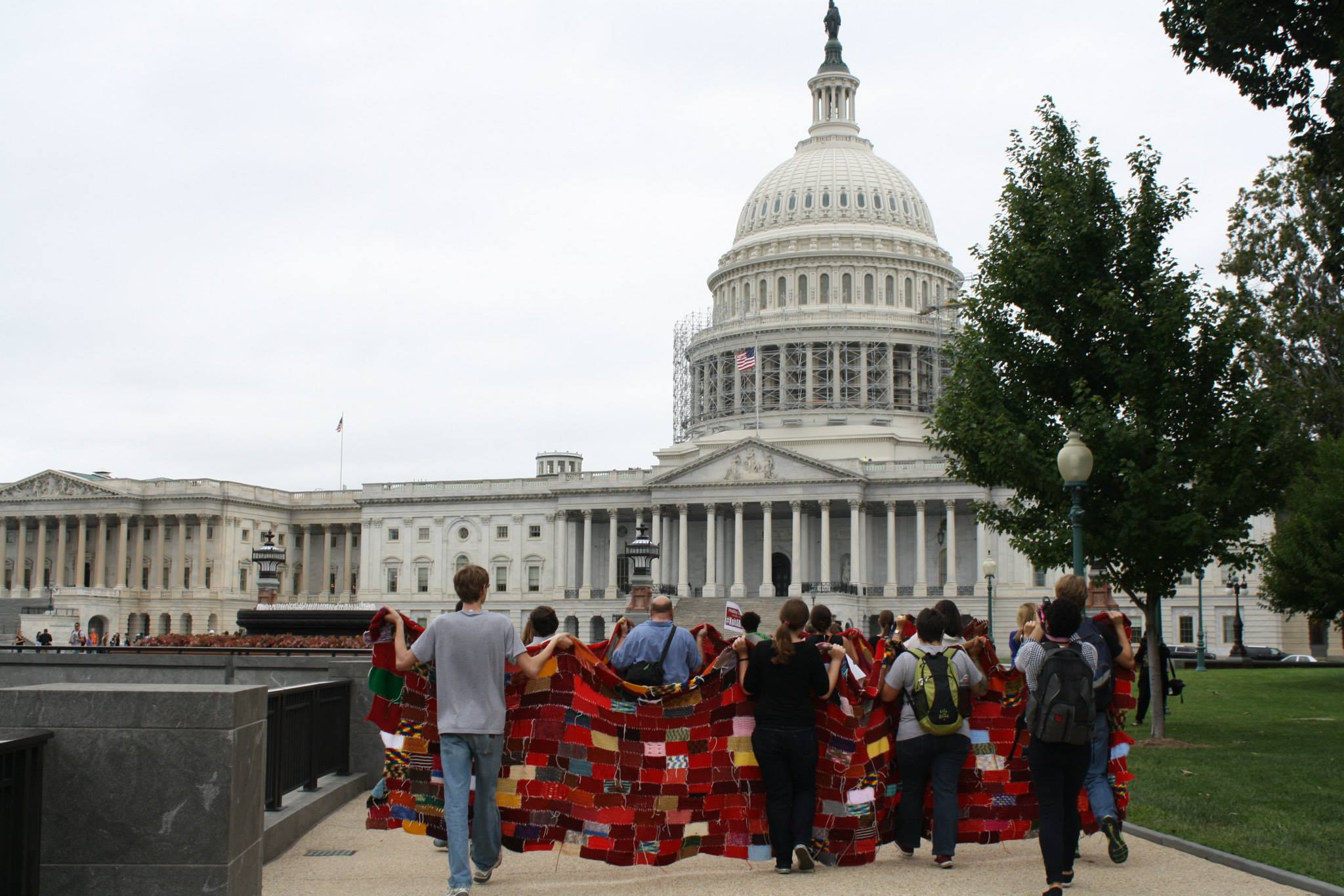 The SCA’s #Knitabrick March (photo by SCA)
The SCA’s #Knitabrick March (photo by SCA)
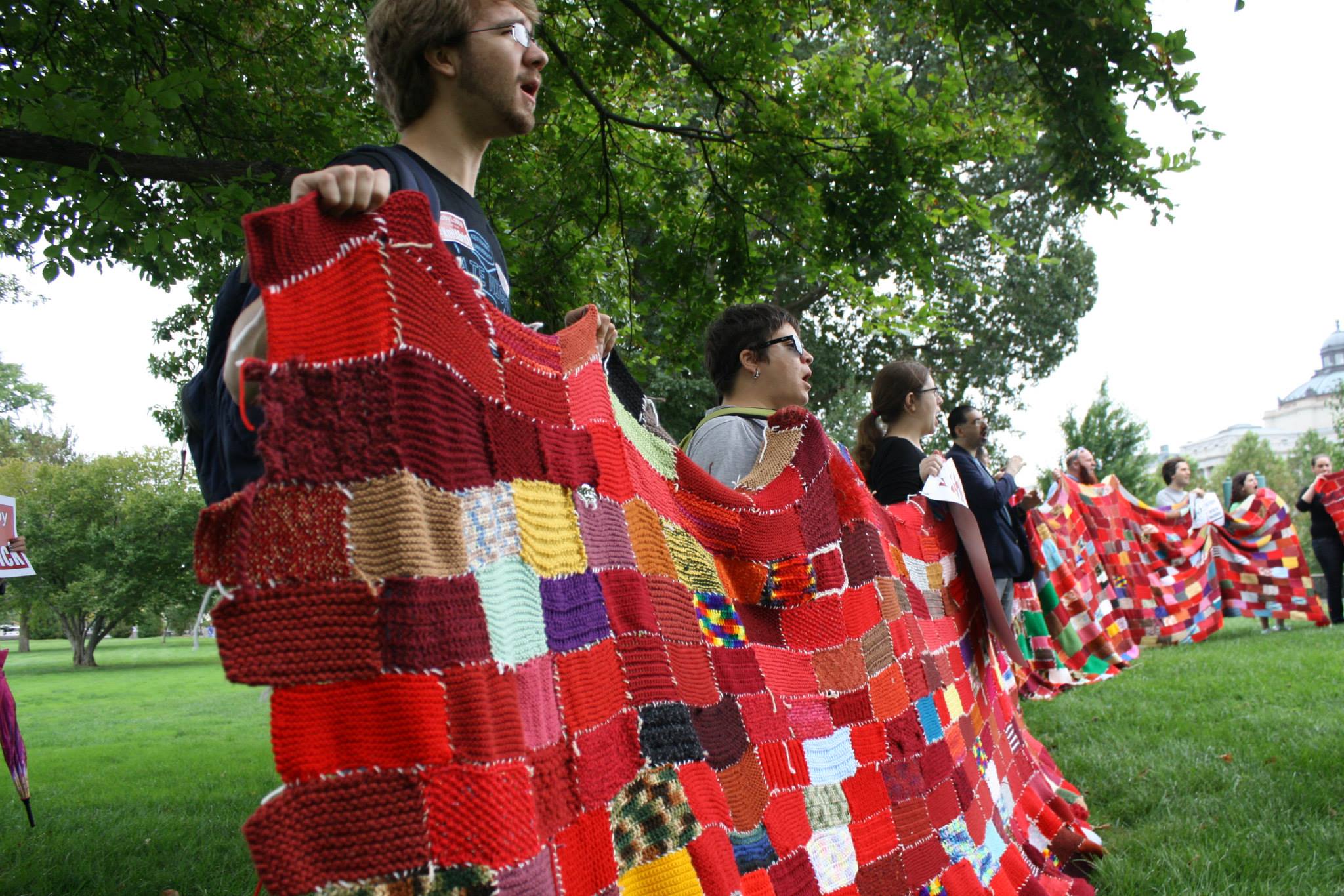 The SCA’s #Knitabrick March (photo by SCA)
The SCA’s #Knitabrick March (photo by SCA)
